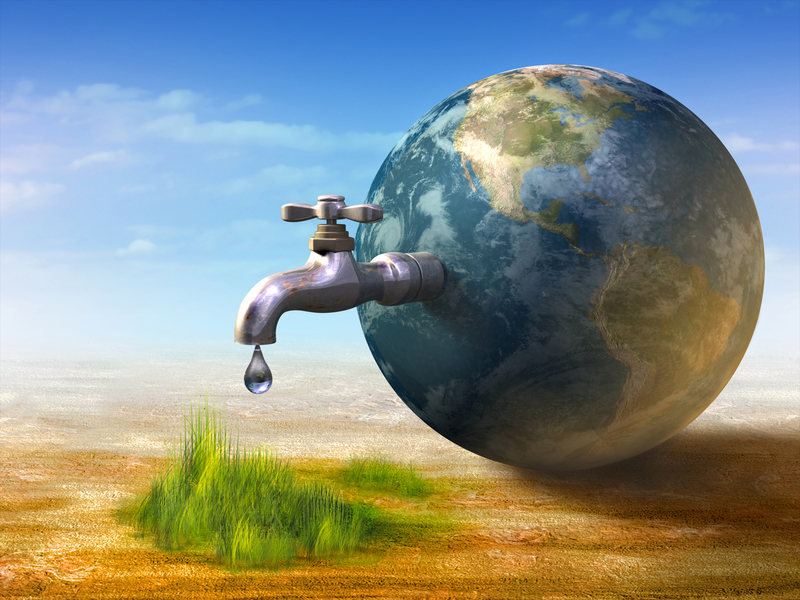Wasting Less Water
 In order to live sustainably, everyone needs access to clean drinking water. In the UK, people are very used to turning on a tap every time they want fresh water. There is so much clean water that people use it to take showers and baths, to wash their clothes, water their gardens and even flush their toilets. Richer nations use huge amounts more water than those living in developing countries. The average American uses around 575 litres of water per day, and Europeans get through 150 litres per day. Not everyone has such ready access to clean drinking water. More than a billion people in developing countries have to make do with fewer than 19 litres of water each, in some cases a lot less (e.g. 5-10 litres per person per day in Ethiopia).
In order to live sustainably, everyone needs access to clean drinking water. In the UK, people are very used to turning on a tap every time they want fresh water. There is so much clean water that people use it to take showers and baths, to wash their clothes, water their gardens and even flush their toilets. Richer nations use huge amounts more water than those living in developing countries. The average American uses around 575 litres of water per day, and Europeans get through 150 litres per day. Not everyone has such ready access to clean drinking water. More than a billion people in developing countries have to make do with fewer than 19 litres of water each, in some cases a lot less (e.g. 5-10 litres per person per day in Ethiopia).
Many people globally suffer when extreme weather conditions cause droughts. In 1995, the UN predicted that half a billion people would be living in water-scarce or water-stressed areas by 2050. By 2005, the organisation revised that prediction to 4 billion people. The 2018 edition of the United Nations World Water Development Report stated that nearly 6 billion people will suffer from clean water scarcity by 2050.
It is important for those people who have access to plenty of clean water, not to waste it. Treating the water that people flush down the drain so that it is clean enough to be pumped back through our taps takes a huge amount of energy. Fixing leaks, turning off the tap whilst brushing your teeth and taking shorter showers can all help to make a small difference at home.
Read More: Waste not, Want not